In 2020, the Council of Korean Americans (CKA) published an informative research paper entitled, The National Korean American Community Promises, Perils, And Paradoxes.
The report was updated in 2023 under the title The Multiple Faces of the National Korean American Community: Progress and Paradoxes. Both groundbreaking documents were drafted by Dr. Taeku Lee, a Korean American Institute cofounder and board member who researches and teaches political science at Harvard University.
To better understand the current state of the Korean American community, Dr. Lee and his researchers gathered and analyzed all the existing government and private sector datasets that are publicly available. The authors also point out many areas where there are gaps in the knowledge about Korean Americans due to lack of research or information that is available.
Building on this important work commissioned by CKA, Dr. Lee and other academic leaders are planning further original research into issues that impact the Korean American community. The Korean American Institute looks forward to working with CKA and others to generate, analyze, and share new information about the Korean American community with the American public.
Key Findings and Conclusions
Here are some valuable highlights, findings, and conclusions from the two reports:
- Economic, Political, and Cultural Progress: Over the last 120 years, Korean Americans have advanced economically, politically, and culturally in the United States. Despite the progress, not all Korean Americans are doing well. As the title of the report indicates, Korean Americans face a paradox of both promises and perils.
Paradoxes Identified in the Report
- Growing Yet Slowing:
Demographically, Korean Americans have grown remarkably in size over the past half-century. However, the rate of growth has slowed significantly due to the declining rate of Korean immigration from abroad. This change implies a transformation in the character of the Korean American population, from a primarily first-generation and majority Korean-speaking community to a more US-born, English-speaking, acculturated community with possibly weaker connections to traditional Korean culture and values.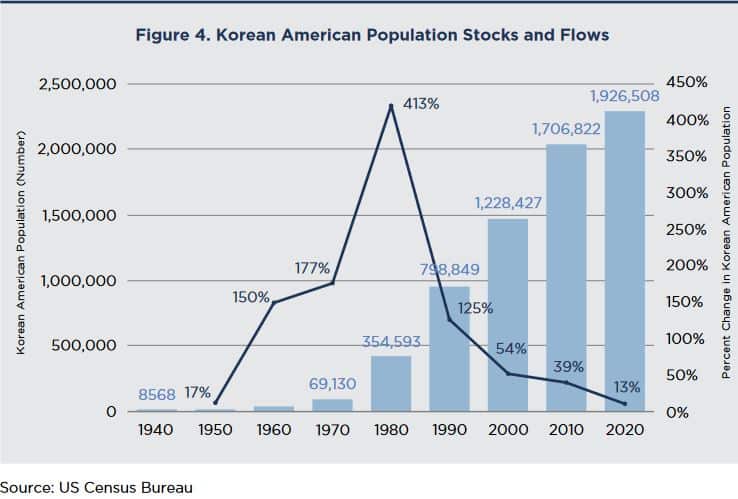
- Successful Yet Lagging:
Socioeconomically, Korean Americans are among the most highly educated groups in the US and earn above median income. However, income significantly lags behind education, and many Korean Americans live in economic precarity, especially older Korean Americans. Surveys also show that many face mental health challenges, sexual harassment in the workplace, racial discrimination, and microaggressions, and are often treated as perpetual foreigners in the United States.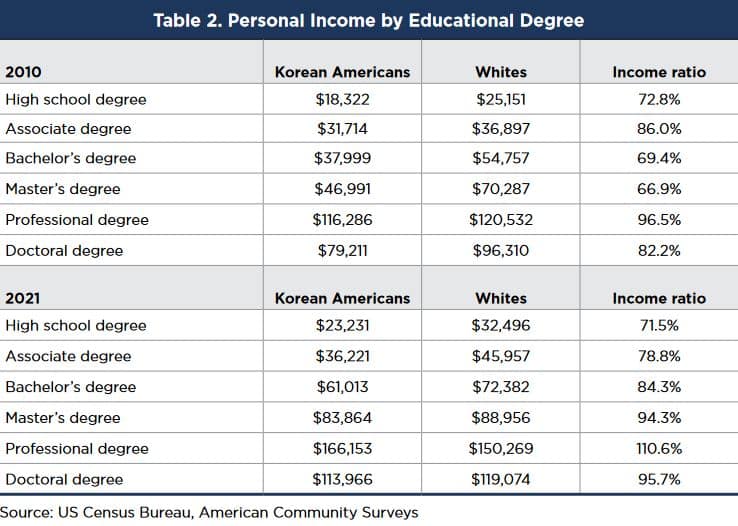
- Racial Solidarity but Interracial Schisms:
Many Korean Americans see their experience through a racial and collective lens—identifying as Korean Americans, seeing many dimensions of commonality unifying Asians in America, and expressing a sense of linked fate with other Korean and Asian Americans. However, Korean Americans seldom interact with Blacks and Latinos, and surveys suggest continued friction and distance, especially with African Americans.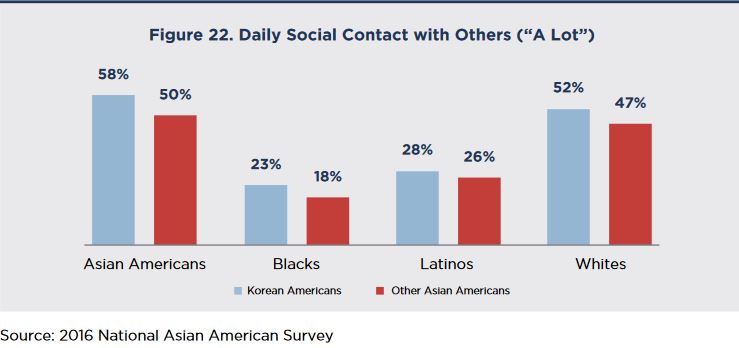
- Politicized Yet Under-Mobilized:
Korean American voters, like other Asian Americans, have grown in number and become solidly Democratic, with largely liberal positions on policy issues. However, Korean Americans remain underrepresented in political office and are less likely than other Asian Americans to be mobilized to register and vote, and less likely to be engaged in politics beyond voting.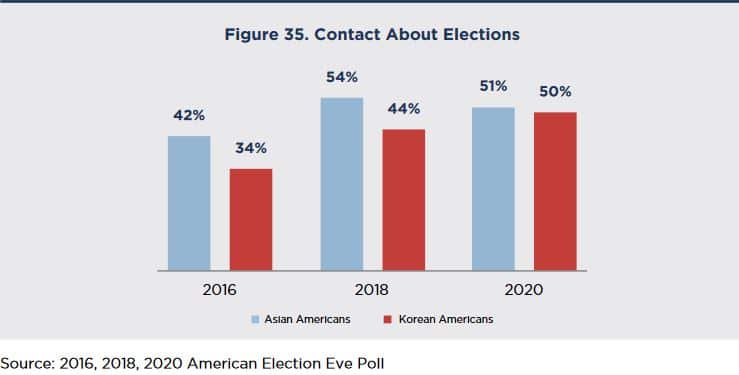
Implications and Challenges
These patterns and paradoxes present clear implications and compelling challenges to all national and community-level organizations representing the Korean American community’s needs and interests:
- The Paradox of Slowing Growth:
We cannot rely on continued increases in population to build power and influence for the Korean American community. - The Paradox of Socioeconomic Struggles:
This challenges the popular accounts of Korean Americans as a model minority. While many have achieved high professional and community status, too many remain left behind, experiencing daily hardships and reminders of being perpetual outsiders in American social and economic life. - The Paradox of Race:
Organizing and acting collectively as a group requires collaboration and coalitions with other racial and ethnic communities. Organizations like the Council of Korean Americans need to invest in relational work with allied organizations representing Black, Latino, and other racial communities. - The Paradox of Politics:
Overcoming the hurdles of underrepresentation, under-mobilization, and under-participation requires a concerted strategic plan to organize and build power in the Korean American community, especially among younger Korean Americans.
Future Research Needs
To better understand and serve the Korean American community, finer-grained data on a range of topics are needed, such as health and mental health outcomes, economic precarity facing older and younger Korean Americans, opinions on specific policy areas (from U.S. trade and security policy affecting the Koreas to higher education policy affecting Korean Americans), and deeper dives into the sources of Korean American under-mobilization and under-participation in politics.
Call to Action
The authors advocate for the need to disaggregate data to reveal the extent of the disparities within and among the Korean American community compared to the broader Asian American communities.
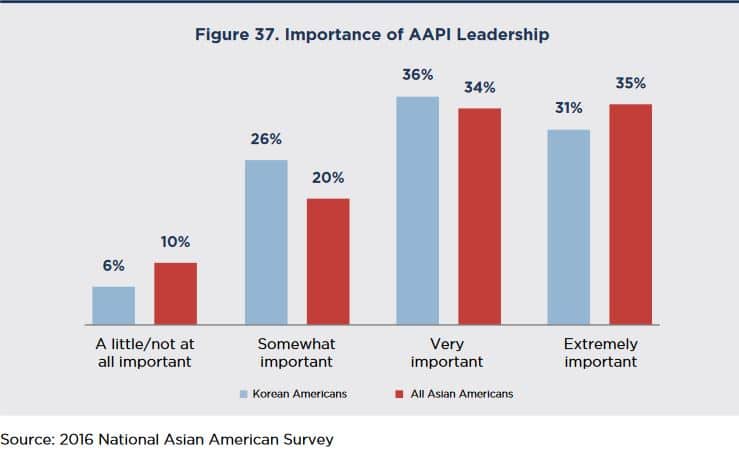
References
- Lee, Taeku. 2020. The National Korean American Community: Promises, Perils, and Paradoxes. Council of Korean Americans.
- Lee, Taeku. 2023. The Multiple Faces of the National Korean American Community: Progress and Paradoxes.
* Lee, Taeku. 2020. The National Korean American Community Promises, Perils, And Paradoxes. Council of Korean Americans.
